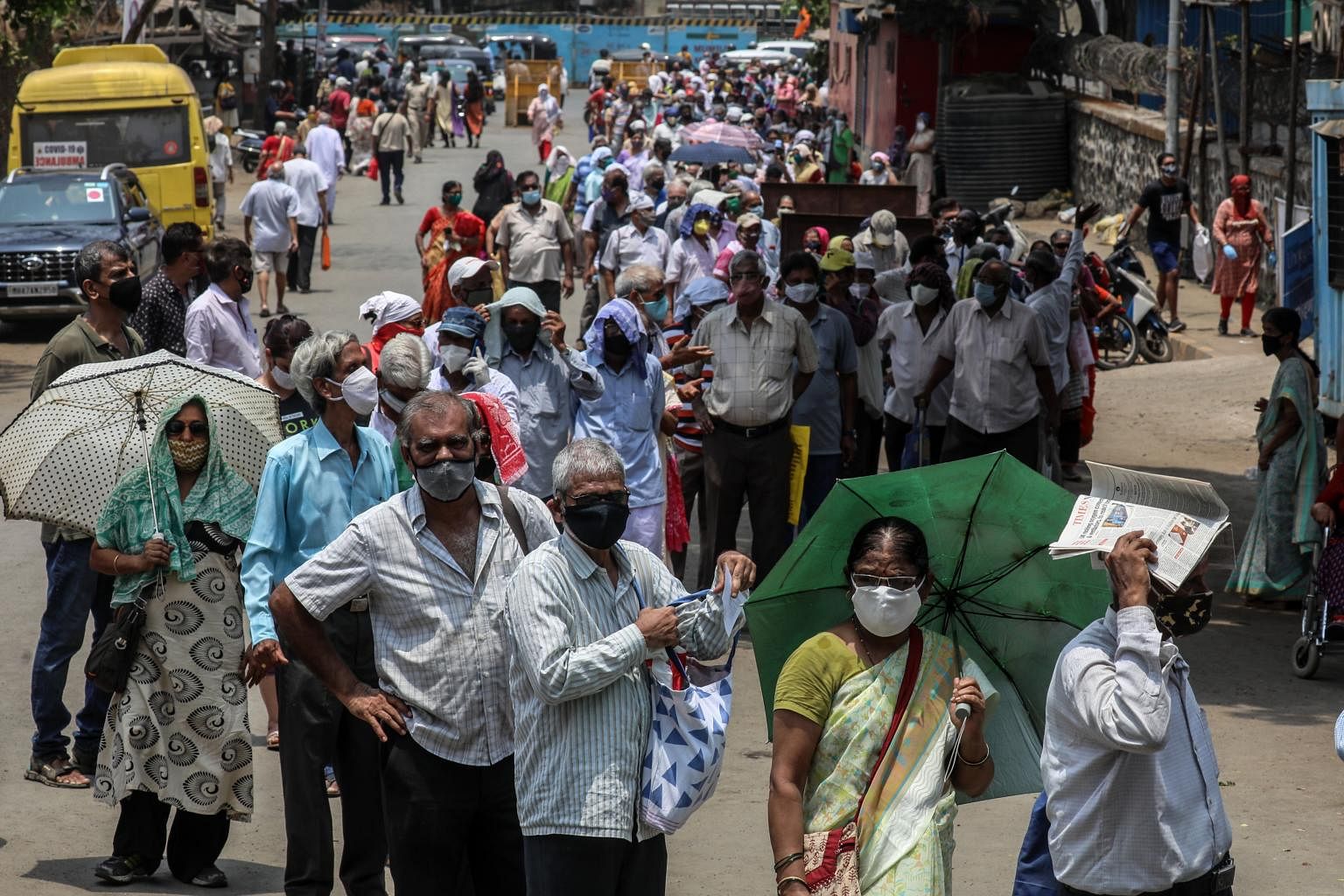India accepts oxygen supply from 40 countries, including Singapore, amid new Covid-19 wave
NEW DELHI – India, which until a few weeks ago was a global supplier of vaccines and medicines, is now depending on help pouring in from over 40 countries, rich and poor, in a sign of how Covid-19 can quickly change fortunes.
Foreign Secretary Harsh Vardhan Shringla said at a press conference on Thursday (April 29) that nations, including Singapore, were sending close to 550 oxygen generating plants, 4,000 oxygen concentrators and 10,000 oxygen cylinders, as well as medicines such as the antivirals remdesivir and favipiravir.
International support has become crucial for India, where people in cities like Delhi are in desperate need of oxygen and medicines.
The Republic of Singapore Air Force sent 256 oxygen cylinders on board two C-130 planes from Singapore to West Bengal on Wednesday, while four cryogenic oxygen containers were airlifted by the Indian Air Force last Saturday.
India, which escaped relatively unscathed in the first wave last year, has been hit by a far more infectious second wave. It reported 379,257 cases on Thursday, its biggest one-day spike, and the highest daily deaths of 3,645.
Some of the aid was requested by India, and some was offered, including by smaller neighbours Bhutan and Bangladesh, which has offered 10,000 vials of injectable anti-viral medication. Mr Shringla said countries had expressed appreciation for help earlier rendered by India.
“The situation now, we have never seen before and will never see. This is an unprecedented situation we are dealing with. We have prioritised items we need but many countries have come forward on their own to offer us assistance,” he said. He noted that the help was also coming from Indian firms bringing in supplies and Indian communities around the world supplementing efforts.
“Countries said they appreciated our assistance and they’re giving us in return.” Mr Shringla said the pandemic had highlighted what it meant to live in an interdependent world.
The South Asian country had rolled out an ambitious vaccine export programme rivalling China’s vaccine diplomacy in a move to fortify its international influence. Apart from donating and exporting vaccines, India had also sent medicines to different countries, including hydroxychloroquine to the US.
India is the world’s third-largest producer of drugs and supplies nearly 60 per cent of the global demand for vaccines, but is now facing shortages at home.
In just one instance of the crisis, India produces 60,000 doses of remdesivir per day but demand has soared to 300,000 to 400,000 a day, said Mr Shringla.
Some observers have noted the shift in India’s longstanding policy of not accepting external help in a crisis. India refused to take tsunami relief in 2004 and similarly turned down aid offers following a flood in Uttarakhand in 2013.
Professor Harsh V. Pant, the director of studies at the Observer Research Foundation in New Delhi, said in this case, India was responding to an exceptional situation.
“This is a humanitarian crisis. India would like to get as much help from wherever it’s able to. Many of the countries are saying that India stood up in a time of need and they are reciprocating,” said Prof Pant.
“I think this is something that doesn’t change the fundamental logic of India’s aid policy, where the idea was to manage on our own. That’s what (former Prime Minister) Manmohan Singh did in 2004. A lot of what is happening now is emergency procurement of medicine and concentrators.
“Once it stabilises, this kind of procurement would end and the larger policy will remain.”
India’s rivals, Pakistan and China, have also offered help.
Pakistan allowed overflight to an EU aid flight and has offered relief, including ventilators.
The country’s ties with China deteriorated following border skirmishes last year in which both sides suffered casualties.
While ties have not been normalised, China’s foreign minister, Mr Wang Yi, on Thursday sent “a message of sympathy” to his Indian counterpart, Mr S. Jaishankar, reiterating support from China.
“Chinese medical suppliers are working overtime on orders from India, at least 25,000 orders for oxygen concentrators in recent days. Cargo planes are under plan for medical supplies. Chinese Customs will facilitate the relevant process,” Chinese ambassador to India Sun Weidong tweeted on Wednesday.
Source: Read Full Article




